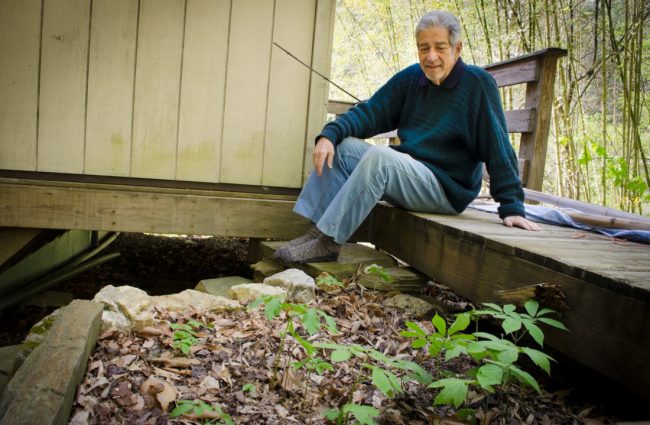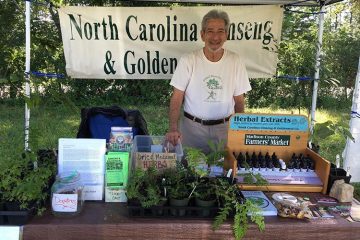
Written by Brooke Randle –
From the April 27, 2021 issue of the Mountain Xpress
Wild American ginseng, prized for centuries for its medicinal qualities as an anti-inflammatory and aphrodisiac, grows naturally on the mountainsides of southern Appalachia.
“The main thing about ginseng is that it is the best plant for the human body to be rejuvenating,” says ginseng farmer Robert Eidus. “It has tremendous benefits to the human body.”
But high international demand for the herb — which sells for about $550 per pound — has led to over-harvesting and driven American ginseng perilously close to extinction. While the season for harvesting wild ginseng only lasts from September through December in North Carolina, the plant requires several years of growth to reach a harvestable size.
Eidus started Eagle Feather Organic Farm more than 25 years ago to grow and protect the area’s natural ginseng. Today, Eidus grows and distributes ginseng roots, seeds and plants while practicing and teaching sustainable agriculture to fellow ginseng lovers at the botanical sanctuary in Marshall.
Since the plants grow in their natural habitat, traditional farming methods are replaced with natural approaches. For example, the harsh chemicals that would otherwise be necessary to protect the ginseng’s valuable root systems against fungus aren’t necessary in the forest setting, Eidus says. Forgoing chemical fungicides protects both the environment and the eventual users of the plants.
“What happens, of course, is since this is a root crop, there’s all of that spraying going into the soil and the plant absorbs it,” he notes.





